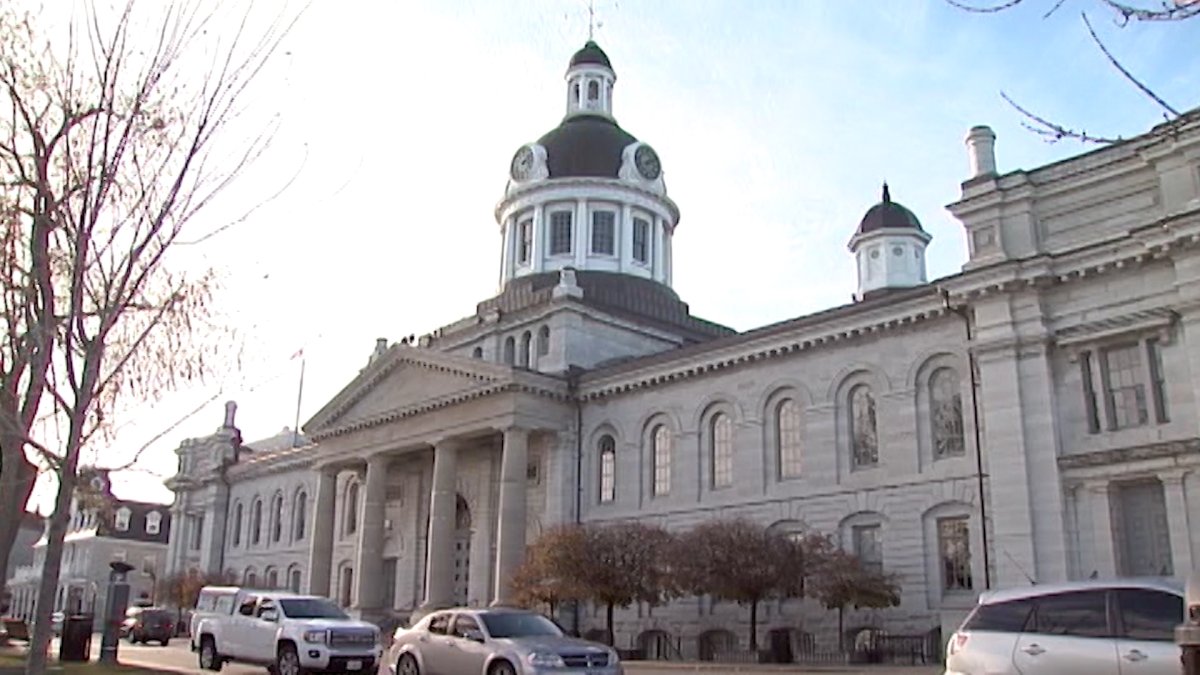Kingston city councillors have opened the books on the 2019 municipal budget, but already there are signs they may not rubber stamp a 2.5 per cent tax increase for homeowners.

Several councillors voiced concerns about the target tax rate that’s being recommended by city managers.
“There’s nowhere in the Municipal Act that bounds council to 2.5 per cent,” observed rookie councillor Simon Chapelle on Monday, the opening night of budget talks.
It’s become standard procedure in the past few years for council to approve budgets based on an annual property tax hike of 2.5 per cent, which includes a one per cent tax dedicated to infrastructure work plus 1.5 per cent to cover inflationary pressures and new council initiatives.
But following the municipal election last fall, there appears to be mounting pressure on the new council to stray from the status quo in order to reduce the tax burden on property owners. This year’s proposed increase would add $87 to the tax bill of a house assessed at $319,000.
Acting chief administrator Lanie Hurdle advised council that any deviation from the proposed tax hike could have a direct impact on services.
“If you choose to reduce this 2.5 percent I would tell you we’ll be talking to you which services you’d like to reduce or eliminate.”

Get daily National news
The city treasury is counting on the additional tax revenue to balance the books this year. Unlike provincial and federal governments, Ontario municipalities are not allowed to run deficits.
This year’s operating budget (excluding utilities) stands at $389 million — the cost to run municipal programs and services in Kingston — which is $10.2 million higher than last year. City finance officials estimate $249 million will be be raised from local taxation and payments in lieu of taxes from other levels of government, while $140 million is collected from non-tax revenues.
“This budget provides us with the opportunity to deliver services we have in the past at the same level,” explained Hurdle.
About one-third of the city’s entire budget, or $126 million, goes to fund the salaries and benefits of municipal employees.
Hurdle says city staff had to prepare the 2019 budget in advance of the new council holding a meeting to set its own list of priorities for the term ahead. The strategic priority workshops are set for late March.
“We didn’t have a whole lot of time to work through this.”
The operating budget also projects $2 million in new assessment growth, similar to last year. While some councillors have complained about the number of new-build residential projects currently tied up in planning appeals, staff say there are a number of other housing projects that are approved but the developers have not moved to start the actual construction.
Here are some other highlights from the 2019 budget;
- NDP to join Bloc in backing Liberals against non-confidence vote
- Republican Mark Robinson denies making racist, sexual posts on porn site
- Macron and Trudeau will meet in Canada next week. What’s on the agenda?
- Ethics commissioner will not investigate Boissonnault over ‘Randy’ texts, says the matter is closed
- transit revenues are increasing by five per cent over 2018, or $383,000, mainly linked to the popular employer ‘Transpass’ program
- parking revenues are up by nine per cent, or $857,000, linked to higher rates charged for on-street parking and parking lots
- revenue from the sale of curbside-collected recyclables is down by 14 per cent to $1.4 million, mainly because China issued a worldwide ban on accepting offshore waste products including recyclables
- the cost to operate Norman Rogers Airport has increased $190,000 a year because of the expanded runway and passenger terminal
In addition to the operating budget, council is also being asked to approve the 2019 capital budget of $51.6 million dollars — money used primarily to fix roads, sidewalks, bridges, and for equipment purchases and other building initiatives such as a new parking garage in the downtown.
Councillor Mary Rita Holland raised the scenario of reducing the special infrastructure tax from one per cent to 0.75 per cent and the operational tax requirement from 1.5 per cent to 0.75 per cent in order to reduce the burden on taxpayers.
The city’s special one per cent infrastructure tax that’s tacked onto annual property tax bills is recommended to remain in place for another six years. Any plan to scale back the tax rate would trigger a discussion on which current services would have to be scaled back or eliminated, Hurdle added.
However, some councillors seem eager to have that discussion during the budget deliberations this week.
After hearing from department heads on the opening night, external boards and agencies are set to discuss their own budget requests on Tuesday.
Councillors may wait until Wednesday, the final night of their scheduled talks, to have a more detailed discussion about this year’s tax rate.










Comments